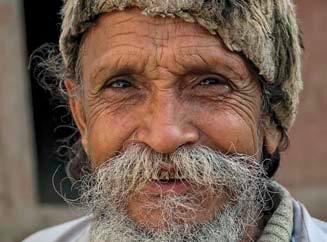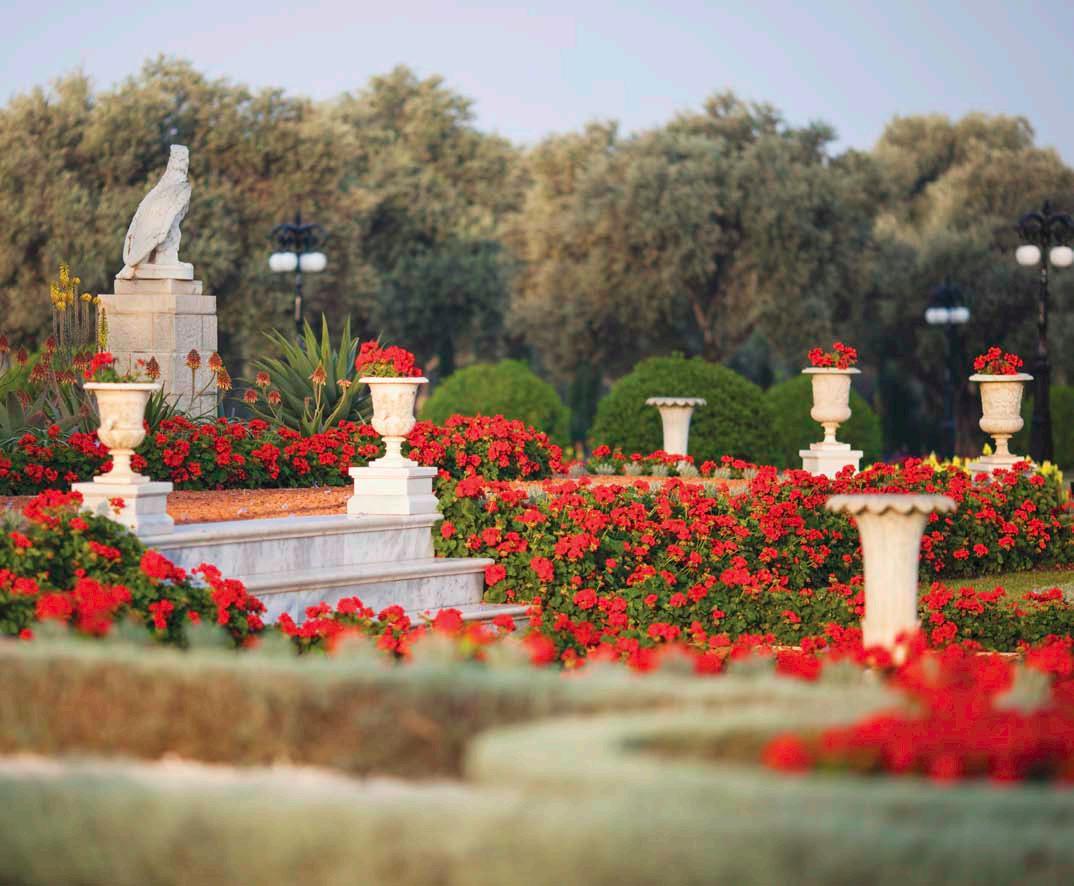
9 minute read
The experience of the Bahá’í community
from The Baha'is
one crisis after another—brought on by war, terrorism, prejudice, oppression, economic disparity, and environmental upheaval, among other causes.
Bahá’u’lláh—as the latest in the series of divinely inspired moral educators Who have guided humanity from age to age—has proclaimed that humanity is now approaching its long-awaited stage of maturity: unity at the global level of social organization. He provides a vision of the oneness of humanity, a moral framework, and teachings that, founded on the harmony of science and religion, directly address today’s problems. He points the way to the next stage of human social evolution. He offers to the peoples of the world a unifying story consistent with our scientific understanding of reality. He calls on us to recognize our common humanity, to see ourselves as members of one family, to end estrangement and prejudice, and to come together. By doing so, all peoples and every social group can be protagonists in shaping their own future and, ultimately, a just and peaceful global civilization.
One humanity, one unfolding faith
We live in a time of rapid, often unsettling change. People today survey the transformations underway in the world with mixed feelings of anticipation and dread, of hope and anxiety. In the societal, economic, and political realms, essential questions about our identity and the nature of the relationships that bind us together are being raised to a degree not seen in decades.
—BAHÁ’U’LLÁH
Progress in science and technology represents hope for addressing many of the challenges that are emerging, but such progress is itself a powerful force of disruption, changing the ways we make choices, learn, organize, work, and play, and raising moral questions that have not been encountered before. Some of the most formidable problems facing humanity—those dealing with the human condition and requiring moral and ethical decisions—cannot be solved through science and technology alone, however critical their contributions.
The teachings of Bahá’u’lláh help us understand the transformations underway. At the heart of His message are two core ideas. First is the incontrovertible truth that humanity is one, a truth that embodies the very spirit of the age, for without it, it is impossible to build a truly just and peaceful world. Second is the understanding that humanity’s great faiths have come from one common Source and are expressions of one unfolding religion.
In His writings, Bahá’u’lláh raised a call to the leaders of nations, to religious figures, and to the generality of humankind to give due importance to the place of religion in human advancement. All of the Founders of the world’s great religions, He explained, proclaim the same faith. He described religion as “the chief instrument for the establishment of order in the world and of tranquility amongst its peoples” and referred to it as a “radiant light and an impregnable stronghold for the protection and welfare of the peoples of the world.” In another of His Tablets, He states that “the purpose of religion is to safeguard the interests and promote the unity of the human race, and to foster the spirit of love and fellowship amongst men.” “The religion of God and His divine law,” He further explains, “are the most potent instruments and the surest of all means for the dawning of the light of unity amongst men. The progress of the world, the development of nations, the tranquility of peoples, and the peace of all who dwell on earth are among the principles and ordinances of God. Religion bestoweth upon man the most precious of all gifts, offereth the cup of prosperity, imparteth eternal life, and showereth imperishable benefits upon mankind.”

The decline of religion
Bahá’u’lláh was also deeply concerned about the corruption and abuse of religion that had come to characterize human societies around the planet. He warned of the inevitable decline of religion’s influence in the spheres of decision making and on the human heart. This decline, He explained, sets in when the noble and pure teachings of the moral luminaries Who founded the world’s great religions are corrupted by selfish human ideas, superstition, and the worldly quest for power. “Should the lamp of religion be obscured,” explained
Bahá’u’lláh, “chaos and confusion will ensue, and the lights of fairness and justice, of tranquility and peace cease to shine.” From the perspective of the Bahá’í teachings, the abuses carried out in the name of religion and the various forms of prejudice, superstition, dogma, exclusivity, and irrationality that have become entrenched in religious thought and practice prevent religion from bringing to bear the healing influence and society-building power it possesses.

Beyond these manifestations of the corruption of religion are the acts of terror and violence heinously carried out in, of all things, the name of God. Such acts have left a grotesque scar on the consciousness of humanity and distorted the concept of religion in the minds of countless people, turning many away from it altogether.
The spiritual and moral void resulting from the decline of religion has not only given rise to virulent forms of religious fanaticism, but has also allowed for a materialistic conception of life to become the world’s dominant paradigm.
Religion’s place as an authority and a guiding light both in the public sphere and in the private lives of individuals has undergone a profound decline in the last century. A compelling assumption has become consolidated: as societies become more civilized, religion’s role in humanity’s collective affairs diminishes and is relegated to the private life of the individual. Ultimately, some have speculated that religion will disappear altogether.
Yet this assumption is not holding up in the light of recent developments. In these first decades of the 21st century, religion has experienced a resurgence as a social force of global importance. In a rapidly changing world, a reawakening of humanity’s longing for meaning and for spiritual connection is finding expression in various forms: in the efforts of established faiths to meet the needs of rising generations by reshaping doctrines and practices to adapt to contemporary life; in interfaith activities that seek to foster dialogue between religious groups; in a myriad of spiritual movements, often focused on individual fulfillment and personal development; but also in the rise of fundamentalism and radical expressions of religious practice, which have tragically exploited the growing discontent among segments of humanity, especially youth.
Concurrently, national and international governing institutions are not only recognizing religion’s enduring presence in society but are increasingly seeing the value of its participation in efforts to address humanity’s most vexing problems. This realization has led to increased efforts to engage religious leaders and communities in decision making and in the carrying out of various plans and programs for social betterment.
—BAHÁ’U’LLÁH

ONE HUMAN FAMILY

The conviction that every individual belongs to one human family is at the heart of the Bahá’í Faith. We are all citizens and co-stewards of one planet. A growing awareness of our common heritage and interdependence allows us to strive for unity in our diversity. The Bahá’í writings assert that we are “flowers of one garden, leaves of one tree” and share a common purpose— to carry forward an ever-advancing material and spiritual civilization. Bahá’u’lláh proclaimed the oneness of humanity and called for the removal of any cause of division that would lead people to see themselves as “us” and “them.”

—‘ABDU’L-BAHÁ
The Bahá’í Guaymi Cultural Center serves a significant population of Guaymi Bahá’ís in the province of Chiriqui, Panama. The Guaymi are one of more than 2,000 tribes represented in the Bahá’í Faith.
Oneness of humanity and elimination of prejudice
The principle of the oneness of humankind is the central teaching of the Bahá’í Faith. Recognition and acceptance of this principle necessitates the abandonment of prejudice of every kind—race, class, color, gender, creed, nationality, age, material wealth— everything that people have used to consider themselves superior or inferior to others. Indeed, Bahá’u’lláh’s vision for a new civilization inspires people to see themselves as citizens of one common homeland, which is the planet itself.

Prejudice—false perception—blinds us to the fact that every person is essentially a spiritual being with unique talents and capacities, a “mine rich in gems of inestimable value.”
Bahá’u’lláh compared the world of humanity to the human body. Healthy functioning of the body depends on cooperation. Millions of cells, diverse in form and function, play their part in maintaining health. The body’s various parts do not compete for resources; rather, each cell plays its role in a continuous process of giving and receiving. So it is with individual humans in an interconnected world.
Genuine, universal fellowship is a requisite for realizing human unity. According to the Bahá’í writings, “So intense must be the spirit of love and loving kindness, that the stranger may find himself a friend, the enemy a true brother, no difference whatsoever existing between them.”
Truly putting into practice the principle of the oneness of humankind, however, goes beyond overcoming prejudice and awakening the spirit of brotherhood and goodwill. The Bahá’í writings state that “It implies an organic change in the structure of present-day society, a change such as the world has not yet experienced....It calls for no less than the reconstruction and demilitarization” of the planet, for a “world organically unified in all the essential aspects of its life” and yet infinite in its diversity. The writings affirm that attainment of this stage of human evolution “is not only necessary but inevitable.”

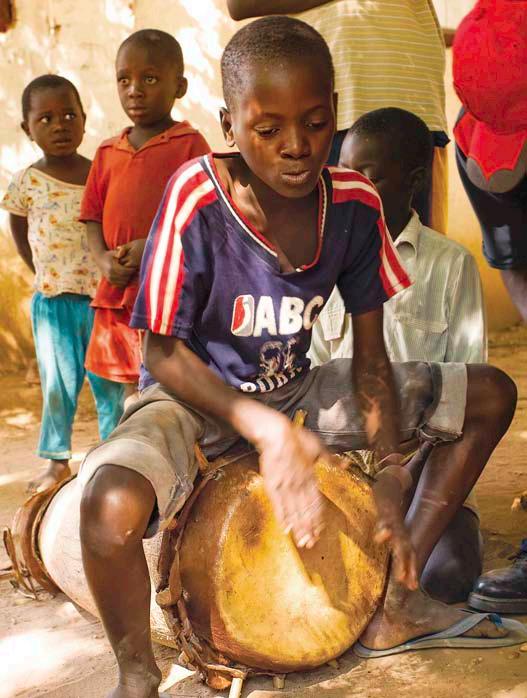
A commitment to selfless service
A natural expression of the love of God and the acceptance of the principle of the oneness of humanity is selfless service to our fellow human beings. “Man’s merit lieth

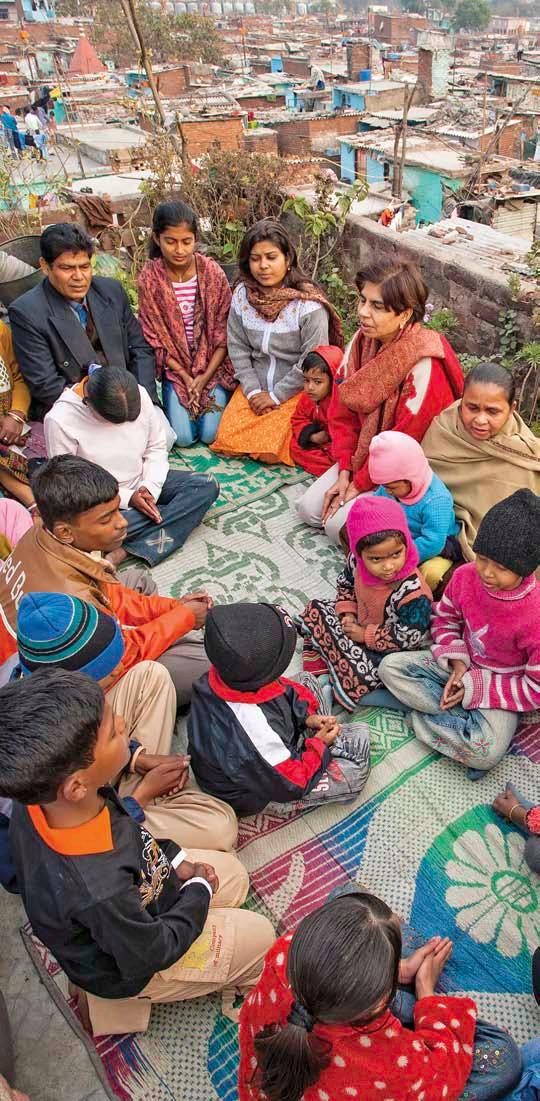
in service and virtue and not in the pageantry of wealth and riches,” wrote Bahá’u’lláh. “The betterment of the world can be accomplished through pure and goodly deeds, through commendable and seemly conduct.”
Bahá’u’lláh’s son, ‘Abdu’l-Bahá, wrote:
And the honor and distinction of the individual consist in this, that he among all the world’s multitudes should become a source of social good. Is any larger bounty conceivable than this, that an individual, looking within himself, should find that by the confirming grace of God he has become the cause of peace and well-being, of happiness and advantage to his fellow men? No, by the one true God, there is no greater bliss, no more complete delight.
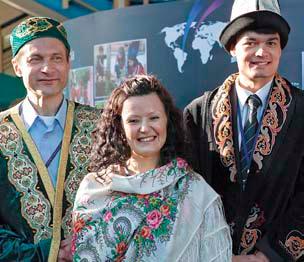
In less than 200 years, the Bahá’í Faith has become a universal faith present in every country of the world. It is quite possibly the most diverse organized body of people on the planet.
